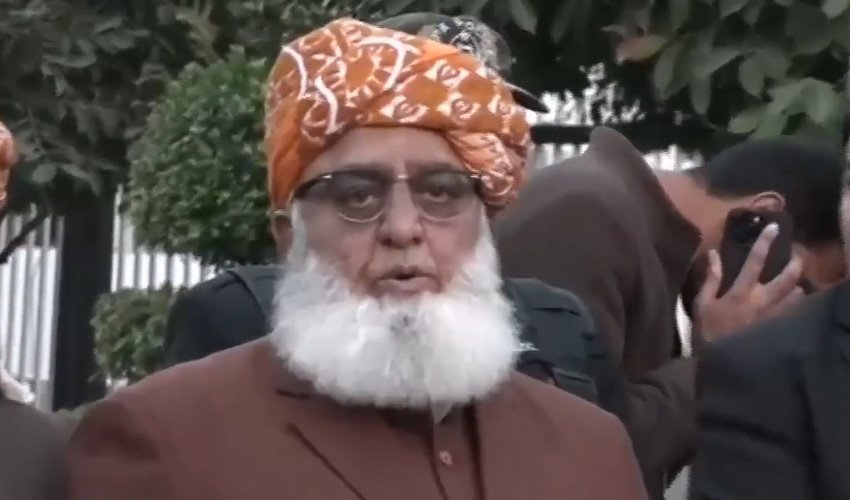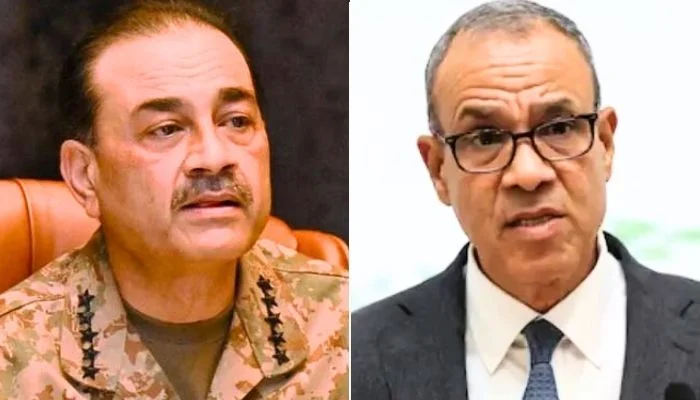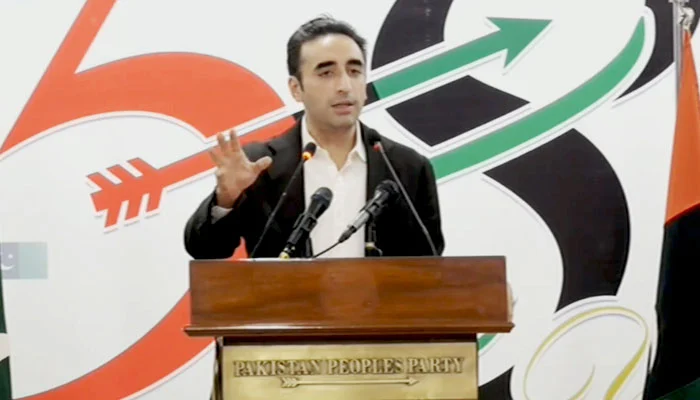Maulana Fazlur Rehman Slams PTI’s Khyber Pakhtunkhwa Government, Stresses Religious Harmony and Judicial Reforms

Jamiat Ulema-e-Islam-Fazl (JUI-F) chief Maulana Fazlur Rehman has strongly criticized the PTI government in Khyber Pakhtunkhwa, calling it a “fake” government and a product of the controversial ‘Form 47’. Speaking to the media in Peshawar, Fazl maintained that his party never compromised on the ideology of its predecessors and emphasized that shaping Pakistan into an Islamic state by constitutionally defining its ideological foundations was the parliamentary role of their forebears.
Fazl also lamented the current state of Pakistan’s democracy and parliamentary politics, describing them as subpar and plagued by numerous questions. He stressed that despite these weaknesses, the system and faith should not be abandoned. “You don’t give up on the system and faith based on weaknesses,” he stated.
A key theme in his address was the separation of religion and state. He argued that religious hatred and sectarianism have a harmful impact on the state, emphasizing that there should be no relationship between the two. Fazl recalled historical moments when Pakistan’s leadership promoted religious harmony, citing the Objectives Resolution passed by the assembly after Pakistan’s formation and the 1951 gathering of Islamic scholars that helped guide the country towards an Islamic governance system.
Turning to the ongoing sectarian issues in Kurram, Maulana Fazl spoke about the long-standing tribal conflicts in the region, highlighting that if the situation was truly sectarian, it should have affected other areas like Hangu, Kohat, and Peshawar. He questioned why the tensions had not spread to these areas but had instead been felt in distant places like Karachi, Lucknow, and Tehran.
The JUI chief asserted that the problem in Kurram was being deliberately stirred up and claimed to know both the issue and its solution. He criticized the involved organizations for misleading society through press conferences, adding that the situation escalated when his party suggested a path toward resolution. He emphasized that his party advocates for the use of patience and tolerance instead of violence in resolving conflicts.
On the matter of judicial reforms, Fazl highlighted his opposition to the expansion of immunity under the 26th Amendment and recalled his party’s refusal to back it. He criticized the manipulation of judicial power, stating that the ability to change high court judges was being concentrated in the hands of a few. Fazl also called for comprehensive judicial reforms, noting that military influence over the judiciary had led to the transfer of cases from civilian courts to military courts in certain instances. He proudly shared that his efforts led to the withdrawal of 34 articles from the constitutional amendment, aimed at preserving the integrity of Pakistan’s courts.





